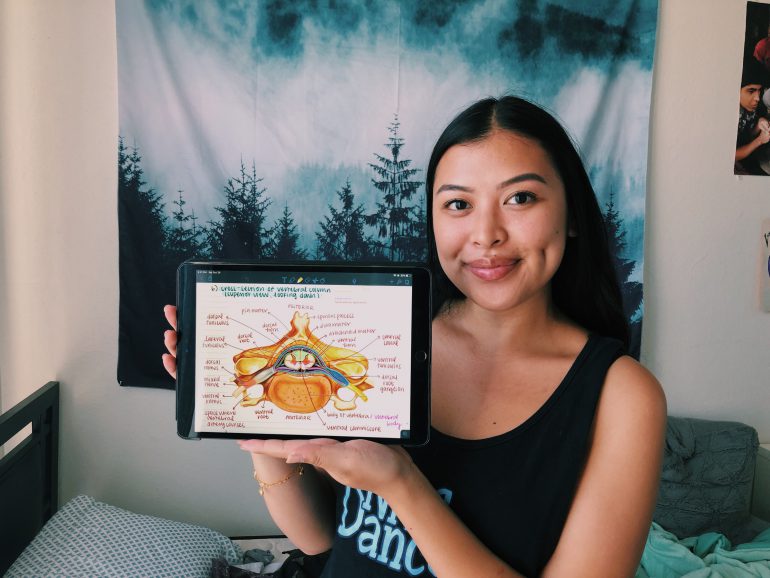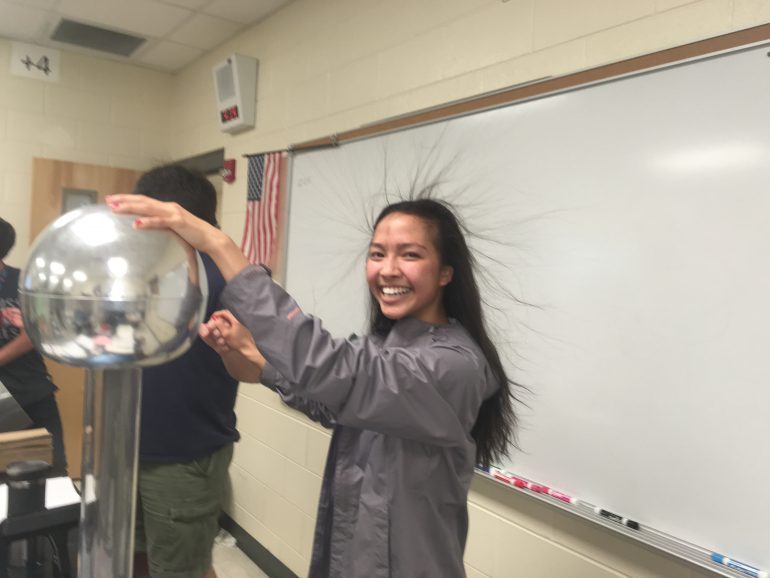
5 Study Tips from Science Majors
We’ve asked science majors from universities all over the country to share their no-fail tips for studying success. From the first day to finals, use these tips to help you study smarter.
1) Calendarize the syllabus
The first thing one should do after registering for their class is look at the syllabus. I like using a spreadsheet like Google sheets or Excel to list out all the assignments and quizzes/exams. This lets me know far in advance the average number of assignments I have a week. Plus, I can put the exams in a calendar and track the amount of studying I have to do. - Melanie Perez, Florida International University
Learn more about how to increase productivity and organization when you’re in college.
2) Practice active recall
On some random Tuesday during my first semester, I decided I wanted to use one of the whiteboards in the library to study. I’ve never looked back.
Active recall on a whiteboard is my secret weapon when it comes to studying. Active recall is a study method in which you write as much as you can remember about a topic, then go back through your notes to fill in the gaps.
Back when I used to study with my notes online, I would trick myself into thinking I knew the material just because I read it over multiple times. With the whiteboard, there’s no pretending I know the material. I write down everything I can remember, and then I go back to my notes to fill in what I can’t remember.
After that first round of writing, I erase everything.
I make sure to close my lecture notes and erase every single speck of writing on my whiteboard and write it all over again, trying to include what I forgot the first time. Since it’s not my computer or a notebook, I can’t scroll or turn back to my notes and cheat; either I remember it, or I don’t.
I find that making mind maps with arrows and hand drawn pictures or diagrams is extremely helpful for putting concepts together, especially for biology. The space and flexibility (you can easily erase and move things around) a whiteboard provides is perfect for that.
With this method, I can easily pinpoint my areas of weakness and cut down on study time since it only takes me around three rounds of active recall to remember and connect everything. Also, it’s way more eco-friendly than doing it on sheets of paper! - Ariana Santiago, Temple University
Discover how to find your perfect study space on campus.
3) Stay motivated
The material in most science based classes is extremely dense and can be difficult to take in in one sitting. Something that helps me stay motivated is to take breaks.
Studies have shown our brains can function and focus most efficiently for roughly 30 minutes to two hours. Therefore, in order to keep studying without draining my brain too much, I will study or work on an assignment for 45 minutes then take a five- to ten-minute break.
My favorite thing to do is get outside for some fresh air and even take a quick walk to reset my focus before getting back to work. This helps me stay motivated and avoid passive learning. - Grace Oh, University of Oregon
4) Do practice problems. Don’t memorize.
Memorization doesn’t allow for a deep understanding of a topic, which is crucial in biology due to its complexity.
Rather than just using flash cards to try and understand processes, which are often too intricate to easily summarize, you should try working through examples and practice problems.
This type of studying will give you real experience with applying equations and concepts. It will also make you more confident going into an exam because you’ve gone beyond just memorizing facts. - Maggie Parker, Syracuse University
5) Take care of yourself
The most important thing to do is to take care of yourself.
Studying all day long with no fun in between can lead to burnout. It can take a physical and mental toll on you.
Your college years are an amazing time when you’re young and able to have fun. Go to the sports games, spend time at the gym, join a club, and hang out with your friends! I also love to reward myself with a sweet treat after exams. You are working hard! - Taylor Perline, Ohio State University
For more study tips and tricks, check out the Insider Tips video located within the Freeman Biological Science 7e Mastering Biology course. View an example here.




